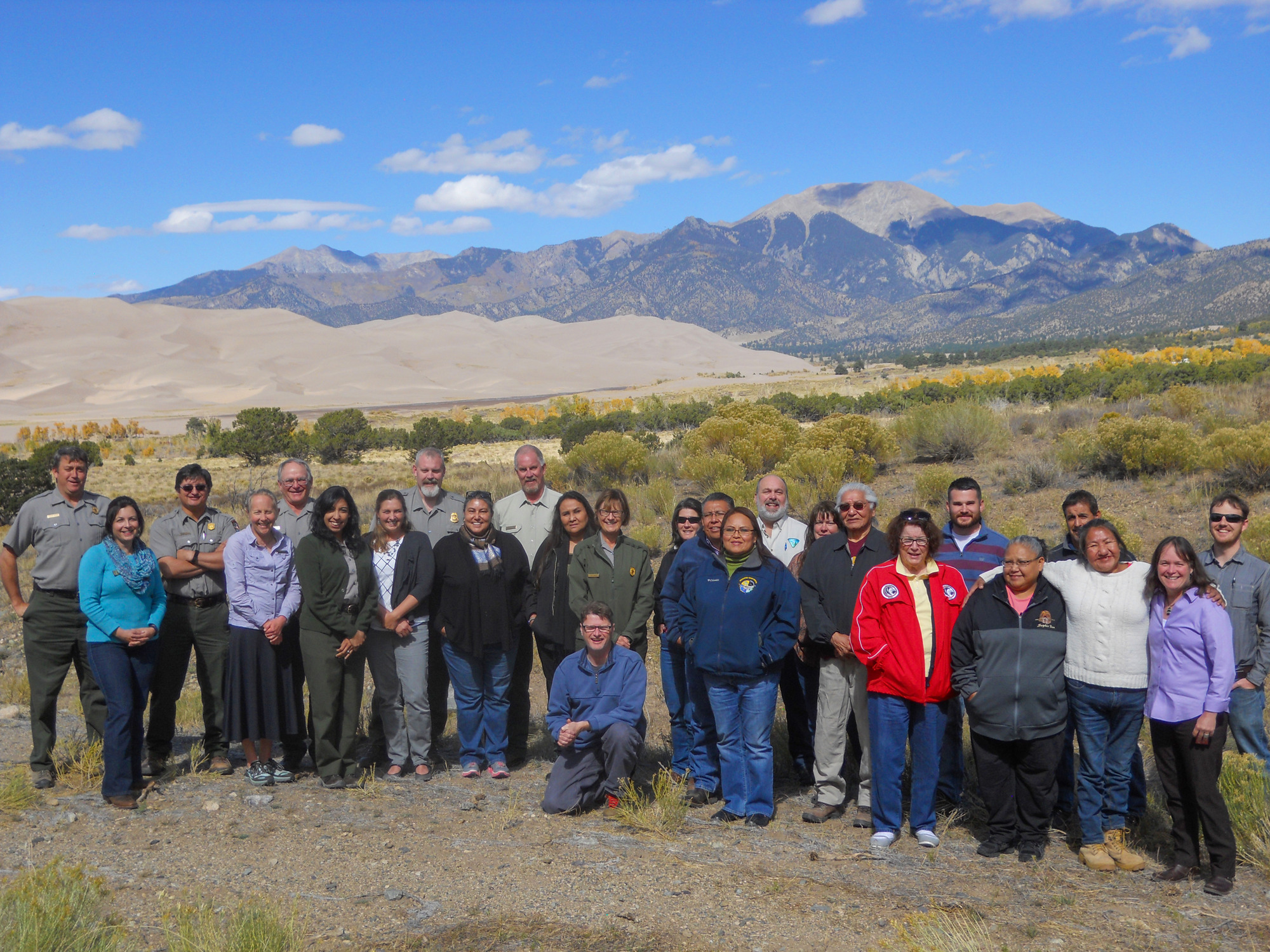News Release

NPS photo
News Release Date: December 6, 2023
Contact: NewsMedia@nps.gov
WASHINGTON — Secretary of the Interior Deb Haaland today announced that the National Park Service will collaborate with Tribes across the nation on a new theme study that will focus on the Indian Reorganization Period to help broaden the understanding of an important chapter in American history.
A theme study provides a national historic context for specific topics in American history or prehistory, as well as evaluation guidance and a list of properties for study as possible future National Historic Landmarks. This theme study builds on the Federal Indian Boarding School Initiative, and other efforts by the Department of the Interior to ensure that Native American history is recognized as American history.
“Native American history is American history, and it should be told by Indigenous peoples. The stories we share inform not just our present but the future world we will pass on to the next generation of leaders. They help define us,” said Secretary Deb Haaland in remarks at the 2023 White House Tribal Nations Summit. “I am grateful that the National Park Service will work closely on this study with Native communities to ensure that their stories, perspectives and Indigenous Knowledge are a key part of this work.”
While injustices and the continued implementation of assimilation policies persisted in many Indigenous communities, during the Indian Reorganization Period (1934 -1950) the country saw a greater appreciation for American Indian culture, more concern given to American Indian self-determination and self-government, and movement beginning to develop more economic opportunity on Tribal lands.
“We will work together with Tribes through rigorous study and collaborative work in interpreting and preserving important chapters in American history, uplifting valuable perspective and strengthening the National Park Service’s role as America’s storyteller,” NPS Director Chuck Sams said.
The National Park Foundation is contributing to the launch of the study, which will be prepared with the guidance and expertise of external partners, including Tribal leaders, academics and other experts in the field. Early work for the study will kick-off in the new year and NPS will begin outreach to Tribes in the coming months.
“The Foundation is pleased to support this collaborative initiative between the National Park Service and Tribes across the country. The study will contribute to a more complete understanding of our shared heritage, including the historical perspectives of Tribes central to this period in American history,” said Will Shafroth, president and CEO, National Park Foundation.
Previous studies by the NPS and its partners have helped provide national historic context for specific topics in American history or prehistory. These studies educate the public about the nation’s heritage and provide a foundation to inform additional NPS or partner-driven work to preserve important and often under-told stories, such as the history associated with the Civil Rights and labor movements.
The National Register of Historic Places is the nation's inventory of properties deemed to be central to its history and worthy of recognition and preservation. It includes more than 98,000 entries, incorporating more than 1.8 million individual buildings and sites representing local, state or nationally significant people, places and events. Just over 2,600 of these properties are National Historic Landmarks, designated by the Secretary of the Interior as representing the highest level of national significance.
The White House Tribal Nations Summit provides an opportunity for the Biden-Harris administration and Tribal leaders from the 574 federally recognized Tribes to discuss ways the federal government can invest in and strengthen nation-to-nation relationships as well as ensure that progress in Indian Country endures for years to come.
www.nps.gov
More than 20,000 National Park Service employees care for America's 425+ national parks and work with communities across the nation to help preserve local history and create close-to-home recreational opportunities. Learn more at www.nps.gov, and on Facebook, Instagram, Twitter, and YouTube.
Last updated: December 7, 2023
